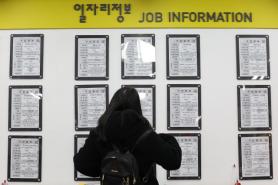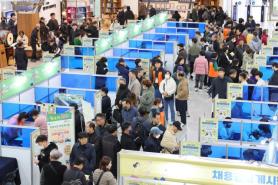
According to data released Thursday by the Korean Statistical Information Service, only 2.44 million new jobs were created in the fourth quarter of 2024 — down from 2.55 million in the same period a year earlier.
The decline marks the 11th consecutive quarter of contraction and the weakest quarterly figure since the agency began compiling such data in 2018.
New jobs, defined as positions generated through corporate expansion or the launch of new businesses, have slowed dramatically as sluggish economic growth and persistent uncertainty have discouraged firms from hiring and investing in new capacity.
The construction and manufacturing sectors, historically considered pillars of stable employment, suffered the steepest losses.
The construction industry shed approximately 58,000 new jobs in the fourth quarter, bringing the sector’s total to 453,000 — its seventh straight quarter of decline.
Manufacturing saw a similar contraction, losing around 38,000 new positions and extending its own losing streak to 11 quarters. As of early 2025, manufacturing accounts for just 15.5 percent of total employment, a record low.
Economists attribute the manufacturing slump to a lopsided recovery centered on semiconductor production, a capital-intensive industry that generates relatively few jobs compared to its output.
“Semiconductor exports have buoyed headline figures, but they don’t translate into broader employment gains,” said Lee Ji-hoon, a labor economist at Korea University. “The ripple effect on the job market is minimal.”
The downturn has also rippled into other industries. Accommodation and food services lost 13,000 new jobs, falling to 231,000 positions, while wholesale and retail trade contracted by 16,000. Economists cite stagnant consumer confidence and restrained household spending as key headwinds.
Copyright ⓒ Aju Press All rights reserved.




